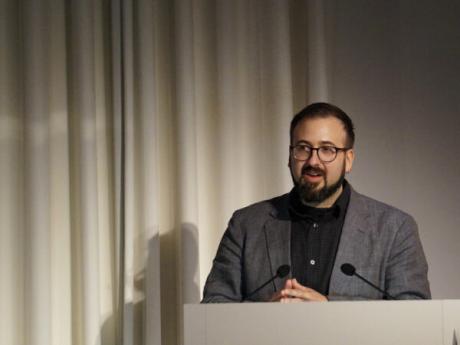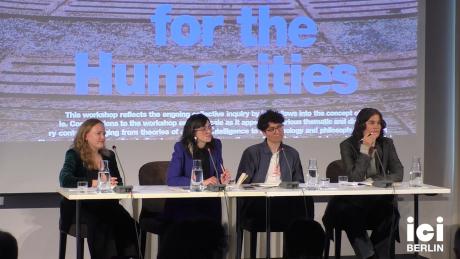Conceptions of scale often start by assuming objects (which are at a scale or may change scales) or assuming subjects (who re-present or form scales). A different notion of scale, resolution, and science emerges when scale is considered independently from this presumption of objects and subjects. As a device for measuring variations, observations, and experience, scale tracks changes in the configurations of objects, actors, and subjects specifically in relation to units of space and time. When these units of space and time exceed those generated by an observing apparatus — especially the ones called ‘human’— scale enables to cross thresholds of intelligibility in new and astonishing ways. Untangling the disorienting results of these extensions require some experimental protocols for reorienting how the very human, non-scalar concepts, language, and practices operate. This talk will dwell in the simplicity, even naivete of the widely assumed sense of scale. It will consider two thought experiments that DiCaglio calls ‘experiential origins of scale’, and explore how they generate a need for scale. DiCaglio will unpack a few provocations that arise from this notion of scale discussing how they reorient towards foundational philosophical assumptions. Specifically, he will discuss 1) what constitutes an object if an object can also be many things depending on the scale and 2) who is the subject that scales?
Joshua DiCaglio received a PhD in English (rhetoric of science) and currently is an associate professor of English at Texas A&M University. His work travels through the tangles of some intractable rhetorical practices, starting with bewildering aspects of science and finding itself, somewhat by accident, in the domain of mysticism. Along the way, he has published on environmental communication, rhetoric of science, and rhetorical theory with some side forays ranging from technical writing to science fiction. His first book, Scale Theory: A Nondisciplinary Inquiry (University of Minnesota Press, 2021), outlines a theoretical basis for and implications of scale, in the sense of the significant shifts in size from the quantum to the cosmic. An edited collection following up on this project, entitled Visions of Scale: Art and the Technoscientific Universe, is under contract with Bloomsbury. This collection gathers together 18 artists, writers, and critics to examine artistic responses to the scalar conceptions of science. DiCaglio has published essays in Interdisciplinary Studies in Literature and the Environment, Configurations, Philosophy and Rhetoric, Science Fiction Studies, and Environmental Communication. His next project, tentatively entitled ‘The Sustainability Paradox: Lithium and the Ecologies of Scalar Objects’ uses lithium as a figure for examining the many challenges and contradictions that arise in our attempt to adjust our planetary structures to ecological relations.
2025


















